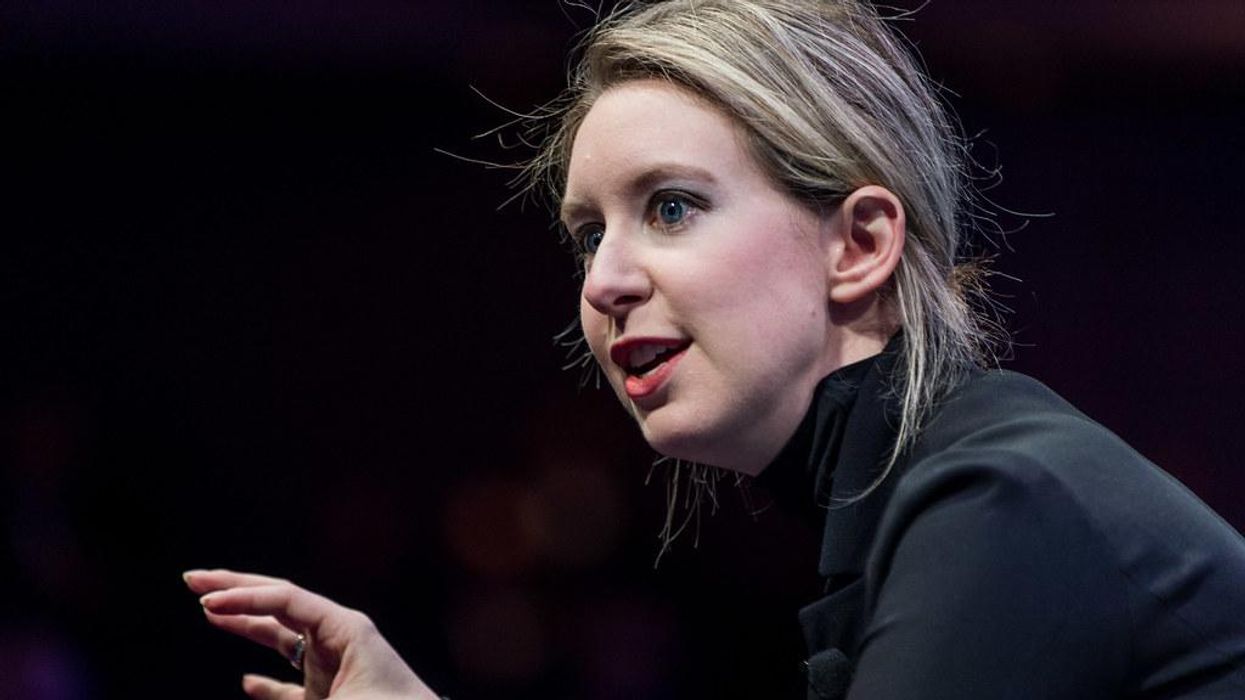
Elizabeth Holmes
She entered the headlines as the super-confident entrepreneur who founded a wildly successful tech company at 19. She recruited generals and secretaries of state to her board. Her fresh face and long blonde hair made the covers of Forbes, Fortune and Inc. as the business world marveled at her invention that could allegedly do blood tests with just a pinprick on the finger — no more needles in veins.
Elizabeth Holmes was just found guilty on four counts of fraud for lying to investors in her quest to raise money for her company, Theranos. It turned out that her blood-testing technology never worked.
Here was another unlovely story about the dishonest fake-it-till-you-make-it culture of Silicon Valley. But the trial took a still more sour turn when Holmes tried a MeToo defense. She claimed she had been victim of an abusive relationship with ex-boyfriend and former Theranos executive Ramesh "Sunny" Balwani. He took over her brain, she implied, and forced her to have sex.
That Balwani was 20 years older added to the innocent-young-thing account. Holmes also claimed to have been raped as a student at Stanford University: That was the reason she dropped out.
"I needed to kill the person I was" to become an entrepreneur, she testified. That kind of advice would have made for one strange TED Talk.
Suddenly, the woman who used her marketing and lying skills to turn a smoke-and-mirrors invention into, at one point, about $4.5 billion of stock, tried to argue that sexually violent men had ruined her ability to run a company.
David Ring, a lawyer who represents victims of alleged sexual abuse, called Holmes' testimony "an incredibly risky move." The defense wisely did not call an expert to speak on how such abuse might have affected her behavior as CEO.
The prosecutor, meanwhile, told the jury members that they didn't have to consider such factors in reaching a verdict. "The case is about false statements made to investors and false statements made to patients," he said.
She had the Silicon Valley patter down pat. She was always pictured in black turtlenecks like Steve Jobs. Wearing the same outfit every day, fashion critic Vanessa Friedman wrote, was "the techie's equivalent of the heroic uniform." She built on the tech-genius storyline of having dropped out of college like Jobs and Bill Gates.
Holmes had mastered all those concept-explaining hand gestures and deployed the big-talk catchphrases. When CNBC's Jim Cramer asked her about the doubters, Holmes responded: "First they think you're crazy. Then they fight you. And then, all of a sudden, you change the world."
To round out the resume, she became a vegan.
And that's how Holmes lured the likes of former Secretaries of State Henry Kissinger and George Shultz and former Defense Secretary William J. Perry to her board. It's how she extracted $100 million from the very rich family of former U.S. Education Secretary Betsy DeVos.
Slapping the logos of Pfizer and other leading drug companies onto her documents (without their permission) helped bamboozle Walgreens into entering a partnership, a deal that gave further weight to the claims.
The defense did make a good point in arguing that the investors were partly to blame: They had failed to perform due diligence to assess the company's assertions.
One wishes that Holmes had taken her lumps. After all, with little business experience she managed to pull one over on some of the most sophisticated minds in America. And most of those she cheated were rich.
Holmes should have held her head higher. Playing the damsel who went bad as the puppet of a powerful man ought to have been beneath her dignity.
Follow Froma Harrop on Twitter @FromaHarrop. She can be reached at fharrop@gmail.com. To find out more about Froma Harrop and read features by other Creators writers and cartoonists, visit the Creators webpage at www.creators.com.








